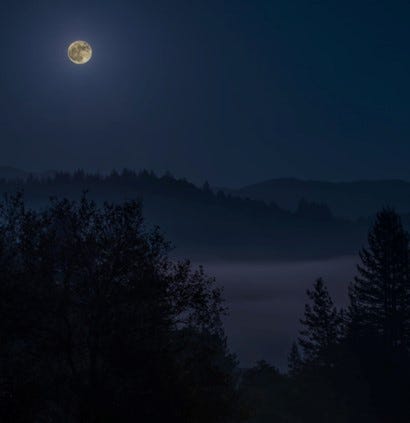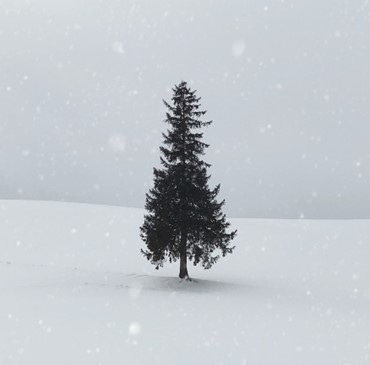The holiday season is all about joy. It is “the most wonderful time of year” where we can all share a spirit of giving. The expectation is that we will be in a festive mood throughout, as we revel in all of the decorating, caroling, partying, shopping, wrapping, baking and other rituals of the season.
But for some of us, not all is merry and bright.
We are unable to put our grief and pain on pause just because it is the holidays. In fact, the holidays have a way of exacerbating isolation, grief and anguish. The celebratory spirit that seems to inspire everyone else can make our own experience of pain even more stark in comparison.
I run a workshop for navigating “Heartache at the Holidays” that always reminds me of how common these experiences can be. These are some sentiments shared by participants:
“I just don’t want to hide the fact that I’m disappointed the cancer is back. When I go to parties, it’s not like I can talk about it, and I feel like there is no room for my pain around the holidays.”
“I love my family and it’s fun to be with the grandkids, but it’s always a reminder that Hank is no longer here to see all of that. I feel guilty celebrating without him, and Christmas will never be the same for me again.”
“I stopped going to mass on Christmas Eve. It is hard to see whole families gathering when mine is torn apart. It is the loneliest time of year for me.”
“I came today because I lost my job a few weeks ago. I can’t afford to buy presents this year and I’m stressed because I didn’t want this to be the year that my kids find out Santa isn’t real.”
When you don’t feel up to participating in the hoopla surrounding the holidays, it can be hard to find a place for yourself amongst the yuletide revelry.
What is making it hard for you to be merry this time of year?
Who in your life might be struggling this holiday season?
December 21st has been marked as a day to recognize this pain amidst joy. It has been referred to by many as “The Longest Night” and might be as close as we come to a global holiday for grief. It coincides with the Winter Solstice, the shortest day of the year when we experience the most darkness. It is not just a day that is difficult due to lack of sunlight, it has also become synonymous with suffering.
Various religions and cultures mark the Winter Solstice by different traditions. In the Christian tradition, many churches now offer a “Blue Christmas” Service. In the hospital setting, we’ve made this a more secular and inclusive “Longest Night” service. You can read about other traditions here. (Personally, I like the idea of a hot bath as part of the Toji observance!) These traditions have deep roots. We know that the Winter Solstice was originally the Pagan holiday of Yule, a precursor for many of our Christmas customs.
The goal for a Blue Christmas or Longest Night service is the same - to carve out a space recognizing the complexity of emotions that people are holding this time of year. It is a gentle and quiet service to acknowledge the emptiness you may be feeling due to whatever griefs you are carrying. We are all grieving something at any point in time and this is a place to honor that.

If you have not yet engaged in the practice and observance of the Longest Night, it might be a good time to start. You may find a service in your community to attend (check churches, hospices, funeral homes).
Here are some online services and resources from churches and organizations I am familiar with, feel free to add other suggestions and links in the comments.
National Cathedral’s Blue Christmas Livestream Service on Dec. 19 at 7pm EST
3MM Longest Night Virtual Service on Dec. 21 at 8pm EST (zoom registration required)
“Deep Peace: A Prayer for Loss & Longing & Love” by Rev. Dr. Eileen Campbell-Reed
Fellow Spiritual Director
writes beautifully about this time of year in her recent post and has some reccomended meditations and liturgy.reimagine’s “Room for Grief” Digital Drop in Grief Support Group with a Focus on the Holidays (registration required) on Dec. 21 at 2pm EST
Church Support Hub’s Resource for creating a Blue Christmas service
If a formal service or group feels like too much, here are some more personal and casual practices you may want to try to embrace the Longest Night:
Light some candles or sit by the fire
Do some Winter solstice yoga poses
Listen to some contemplative music
Read some poetry about winter






So beautiful, Christine! I love: “When you don’t feel up to participating in the hoopla surrounding the holidays, it can be hard to find a place for yourself amongst the yuletide revelry. “ wow!
Thinking about Christmas more as birthing rather than a birthday party helps us to lean into the pain it also brings. Thank you for offering such a beautiful place for it 🥰
PS: Hildegard of Bingen recommends spiced wine as a warm drink.
I was not aware of the Longest Night and intend to incorporate this into my own grieving rituals and share with others. Thank you for this!